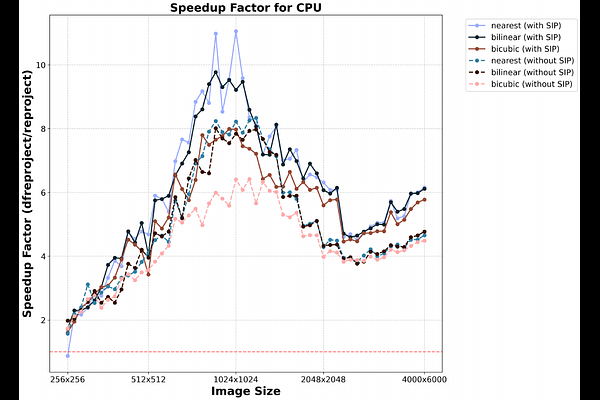dfreproject: A Python package for astronomical reprojection

dfreproject: A Python package for astronomical reprojection
Carter Lee Rhea, Pieter Van Dokkum, Steven R. Janssens, Imad Pasham, Roberto Abraham, William P Bowman, Deborah Lokhorst, Seery Chen
AbstractDeep astronomical images are often constructed by digitially stacking many individual sub-exposures. Each sub-exposure is expected to show small differences in the positions of stars and other objects in the field, due to the movement of the celestial bodies, changes/imperfections in the opto-mechanical imaging train, and other factors. To maximize image quality, one must ensure that each sub-exposure is aligned to a common frame of reference prior to stacking. This is done by reprojecting each exposure onto a common target grid defined using a World Coordinate System (WCS) that is defined by mapping the known angular positions of reference objects to their observed spatial positions on each image. The transformations needed to reproject images involve complicated trigonometric expressions which can be slow to compute, so reprojection can be a major bottleneck in image processing pipelines. To make astronomical reprojections faster to implement in pipelines, we have written `dfreproject`, a Python package of GPU-optimized functions for this purpose. The package's functions break down coordinate transformations using Gnomonic projections to define pixel-by-pixel shifts from the source to the target plane. The package also provides tools for interpolating a source image onto a target plane with a single function call. This module follows the FITS and SIP formats laid out in the seminal papers. Compared to common alternatives, `dfreproject`'s routines result in speedups of up to 20X when run on a GPU and 10X when run on a CPU.